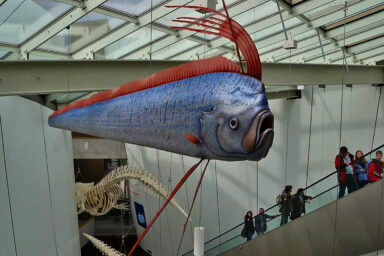Texans on Southern Border Vow to Fight Trump’s Efforts to Take Their Homes for Border Wall
France Bans Two Pesticides, Citing Risk to Bees ; Does Your Dog Actually Love You? ; and More Picks
France Bans Two Pesticides, Citing Risk to Bees ; Does Your Dog Actually Love You? ; and More Picks 12/9
Oceans Running Out of Oxygen as Temperatures Rise (Mili)
The author writes, “Around 700 ocean sites are now suffering from low oxygen, compared with 45 in the 1960s. Researchers say the depletion is threatening species including tuna, marlin and sharks. The threat to oceans from nutrient run-off of chemicals such as nitrogen and phosphorus from farms and industry has long been known to impact the levels of oxygen in the sea waters and still remains the primary factor, especially closer to coasts. However, in recent years the threat from climate change has increased.”
France Bans Two Pesticides, Citing Risk to Bees (Chris)
From Phys.org: “A court in Nice, ruling in a case brought by two ecological associations, banned the products from US group Dow AgroSciences, on the grounds that their containing sulfoxaflor was harmful to bees’ nervous systems.”
Authorities in Denver Area Block Police Radios From the Public (Reader Steve)
The author writes, “Police radios in a large swath of Denver’s southeast metro area went dark this week as law enforcement in Douglas and Elbert counties encrypted their radio systems to block public access to the transmissions, which have for decades provided the public with live information on police activity.”
Mike Bloomberg’s Money Buys Him a Very Different Kind of Campaign (Russ)
The author writes, “After two weeks in the presidential race, Mike Bloomberg now employs one of the largest campaign staff rosters, has spent more money on ads than all the top-polling Democrats combined and is simultaneously building out ground operations in 27 states.”
Does Your Dog Actually Love You? (Chris)
From The Cut: “Some depressing new research suggests that your dog might not really be obsessed with you. Well, it might be, but not because of a special human-dog bond. It turns out that dogs love basically every species they come into contact with, be it a sheep, a duck, or a dolphin.”


